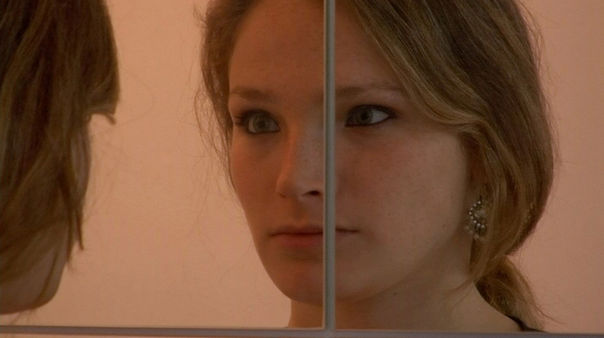Modesty Bites
The bus as a platform for social change: living with discrimination in present-day Israel.

BLACK BUS
What initially comes to mind when watching Anat Yuta Zuria’s Berlinale Forum contribution BLACK BUS (Israel) is Rosa Parks and the civil right’s movement, yet we are reminded that even today the bus remains a poignant public space of such discrimination. It is a historically loaded vehicle of societal inequities, and her documentary brings us the story of contemporary women in Israel who obstinately refuse to be treated as second-class citizens.
The film pivots between Sara and Shulamit, who have recently “come out” – renouncing their ultra-orthodox roots and tenaciously setting out to bring awareness to others through sharing their experiences via their respective mediums. Sara is a blogger who has used this outlet to purge herself of repression, and Shulamit attempts to make sense of the word around her, naively flouting her community by intrusively photographing them. Weaving the two women’s stories together, and seamlessly integrating Shaulamit’s still photographs as well as Sara’s interviews with various friends and readers of her blog, Zuria utilizes their mediums to enrich the film’s own visual style and narrative approach.
The quotidian space of the bus is the crux of the film, and we come to learn why Hasidic women and men prefer to be separated from one another: modesty. The Hasidic focus on modesty, and the implicit repression and denial of sex that accompanies such rigid regulations is at the heart of the two women’s protest. The lovelessness in marriage, family, and by extension throughout the community, leads to superficial judgments, intolerance, and banishment. The film’s climax occurs when the collision of these conflicting viewpoints comes to a head. Shulamit refuses to sit in the women’s section at the back of the bus, proclaiming her right as a citizen of the democratic State of Israel to sit where she pleases on a public bus. The scene turns aggressive and chaotic as men begin yelling obscenities. At times we feel that the theme is getting flogged, not to death, but to the point of weakening the impact of the powerful scenes with too much retelling and rehashing of the same points.
Yet the film gives voice to an important and under-reported issue in today’s dialogue on human and gender rights. Its depiction of everyday street life in Israel is keen and provides a context for these two women’s stories. The precarious nature of a bus ride aptly demonstrates the unstable foundation upon which Sara and Shulamit stagger to find meaning and gain footing in their newly acquired freedom.


301 Moved Permanently